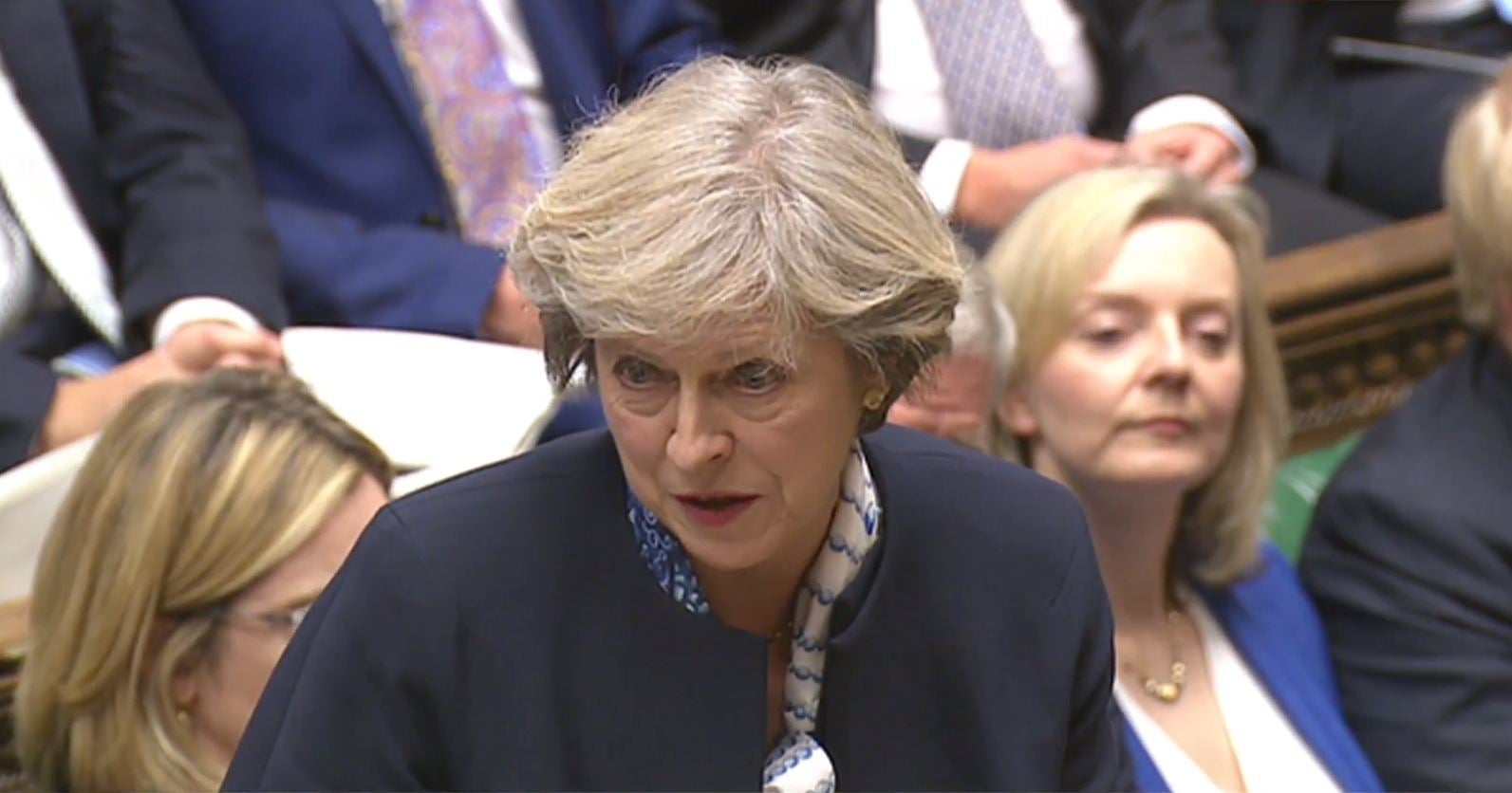Theresa May accused of backing down over greater scrutiny for her Brexit plans
Ms May faces growing pressure from her backbenches to allow Parliament a stronger role in determining Brexit

Theresa May has been accused of back-peddling on greater scrutiny for her Brexit plans, after refusing to say that the House of Commons will be allowed a vote on Britain’s EU withdrawal.
It comes less than 24 hours after pressure from Labour and Tory rebels forced her to give way in a row over how much influence Parliament has over her Brexit plan.
To avoid a backbench rebellion, Ms May had effectively given her backing to a Labour motion last night, calling for Parliament to "properly" scrutinise her proposals for Brexit.
But asked in the Commons today whether that meant the House would also get a vote on her plans, Ms May failed to answer directly.
A spokesman for Jeremy Corbyn said: "The government’s already u-turned."
Last night Labour tabled a motion calling for "a full and transparent debate on the government's plan for leaving the EU" and "to ensure [the Commons] is able properly to scrutinise that plan" before Article 50, launching official Brexit talks, is invoked.
Enough pro-EU Tories, some who have also been calling for a vote, threatened to back Labour’s motion, that Ms May accepted it, adding an amendment that gave her MPs a way to back it without explicitly opposing her.
The Prime Minister’s amendment adds that any scrutiny must "not undermine the negotiating position of the government as negotiations are entered into".
Asked in the House of Commons by Labour MP Angela Eagle whether her backing meant there would now be a vote on her Brexit plans, she avoided the question, responding instead: "The idea that Parliament somehow wasn’t going to be able to discuss, debate, question issues around [Brexit] was frankly, completely wrong."
She pointed out that Brexit Secretary David Davis had made two statements on Brexit, that there would be a parliamentary committee on it and that there would be a Great Repeal Bill to end EU authority that would need parliamentary approval, albeit after Article 50 has been triggered.
A spokesman for the Prime Minister later said Ms May’s amendment to the Labour motion was consistent with the government’s previous position, which was not to allow a Commons vote.
Join our commenting forum
Join thought-provoking conversations, follow other Independent readers and see their replies
Comments
Bookmark popover
Removed from bookmarks